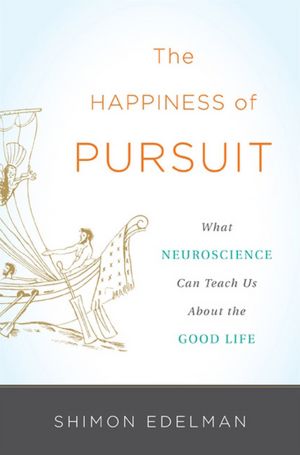From Salon, Lucy McKeon speaks with Shimon Edelman, a cognitive expert and professor of psychology at Cornell University, about his new book, The Happiness of Pursuit: What Neuroscience Can Teach Us About the Good Life.
The neuroscience of happiness
New discoveries are shedding light on the activities that make us happy. An expert explains.
(Credit: Zurijeta via Shutterstock)
They say money can’t buy happiness. But can a better understanding of your brain? As recent breakthroughs in cognitive science break new ground in the study of consciousness — and its relationship to the physical body — the mysteries of the mind are rapidly becoming less mysterious. But does this mean we’ll soon be able to locate a formula for good cheer?
Shimon Edelman, a cognitive expert and professor of psychology at Cornell University, offers some insight in “The Happiness of Pursuit: What Neuroscience Can Teach Us About the Good Life.” In his new book, Edelman walks the reader through the brain’s basic computational skills – its ability to compute information, perform statistical analysis and weigh value judgments in daily life – as a way to explain our relationship with happiness. Our capacity to retain memories and develop foresight allows us to plan for the future, says Edelman, by using a mental “personal space-time machine” that jumps between past, present and future. It’s through this process of motivation, perception, thinking, followed by motor movement, that we’re able not only to survive, but to feel happy. From Bayes’ theorem of probability to Shakespeare’s “Romeo and Juliet,” Edelman offers a range of references and allegories to explain why a changing, growing self, constantly shaped by new experiences, is happier than the satisfaction any end goal can give us. It turns out the rewards we get for learning and understanding the workings of the world really make it the journey, not the destination, that matters most.
Salon spoke with Edelman over the phone about the brain as computer, our cultural investment in happiness, and why knowing how our brains work might make us happier.
In the book, you approach neuroscience from a popular perspective, using language and allegories laypeople can understand. How can even a superficial understanding of how the brain works aid in one’s self-understanding?Well, I think the principles in question are actually pretty accessible on what you call a superficial level. When we make decisions it basically boils down to value computation: Different options get weighed and chosen on the basis of mathematical processes.
Well, if pursuit is the key to happiness, is this kind of happiness sustainable? And if so, what might it look like?Let me say firstly the answer is yes, and then I’ll have to elaborate a bit. There’s an example that made it into the book last minute because I’d just watched a movie, a Canadian film called “One Week” about a guy who gets diagnosed with cancer. He gets on his motorcycle and rides west and comes across all kinds of people and places. At one point, he goes on a hike, gets lost and meets another hiker there, a woman. They end up camping around a fire and he asks her at one point, “If you knew you had one week to live what would you be doing?” And she says without any hesitation, “What I’m doing now.” So what better definition of true happiness than that? And that’s definitely obtainable. If you just pause and ask yourself.
Read the whole interview.


No comments:
Post a Comment